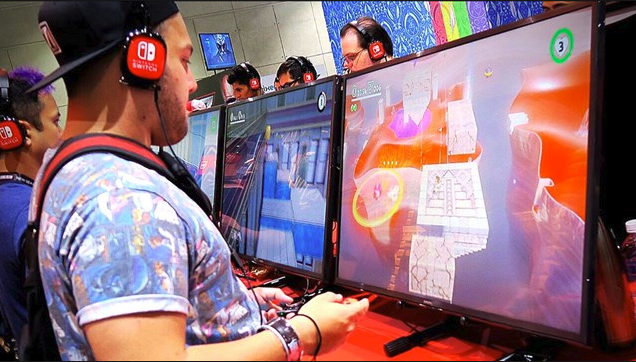Attention deficit hyperactivity disorder (ADHD) affects brain development and it can be diagnosed from 3 to 6 years of age. Children with ADHD often display hyperactivity and impulse action, and some may have trouble paying attention in school.
As they get older, the symptoms may become more prominent, making academic achievement difficult. Adolescents may find relationships difficult, display antisocial behaviors, and experience inattention and impulsivity.
According to the Centers for Disease Control and Prevention (CDC), approximately 11 percent of American children aged 4 to17 years live with ADHD. In 2011, around 6.4 million children in the United States were diagnosed with ADHD.
According to the Anxiety and Depression Association of America (ADAA), 50 percent of children with ADHD in the U.S. still have the condition as adults. This represents about 4 percent of the adult population, or 8 million American adults.
What are ADHD and depression?
People with ADHD may be more likely than others to have another type of anxiety or mental health illness such as depression.
![[boy with ADHD crying]](https://cdn1.medicalnewstoday.com/content/images/articles/314/314905/boy-with-adhd-crying.jpg)
Children with ADHD may also experience depression.
Depression is a common yet serious mood disorder. It affects a person’s feeling, thinking, and actions. It can cause strong feelings of sadness, loneliness, and a lack of interest in life activities.
The National Alliance on Mental Illness (NAMI) estimate that around 16 million American adults, or 7 percent of the U.S. population, had at least one major depressive episode in 2015.
Women are 70 percent more likely than men to experience depression. Younger adults aged 18 to 25 years are 60 percent more likely to have depression than people aged 50 or older.
People with ADHD have a higher risk of depression due to the stress it causes and the challenges they face. Up to 70 percent of all people with ADHD will experience symptoms of depression at some time.
Since the problems related to ADHD will persist if they are not treated, the individual can feel as if they are losing control as things may not seem to get better.
Identifying symptoms
The symptoms of depression and ADHD can be similar. Depression in people with ADHD may appear differently from how it appears in people without ADHD. As a result, the depression is sometimes misdiagnosed as ADHD.
The use of medication for ADHD can also make a diagnosis of depression more difficult.
The effects of the medication can sometimes mimic the symptoms of depression. The drugs for ADHD can also make the symptoms of depression worse.
As a result, it can be difficult to distinguish the two conditions and to treat them properly.
Depression and ADHD do have some common symptoms but for different reasons. Both can involve difficulty concentrating or a loss of motivation.
A person with ADHD may lose motivation because they think their efforts will not be noticed or make a difference. A person with depression may not complete their work because they feel there is no purpose.
A person with ADHD may also have problems starting projects or keeping up with schoolwork. They may leave a project incomplete because they tune out, do not listen, or do not learn the material. A person with depression may be unable to focus due to distraction or fatigue.
Sleeping difficulties, mood changes, and irritability are features of both ADHD and depression.
However, ADHD is normally a lifelong disorder, whereas depression can come and go.
ADHD and depression in children and adults
ADHD can be challenging for children who are still developing emotionally, mentally, and physically, partly because they may not understand what is happening.
![[sad girl]](https://cdn1.medicalnewstoday.com/content/images/articles/314/314905/sad-girl.jpg)
Children with ADHD may struggle with depression because they do not understand what is happening.
Issues with behavior and self-esteem can lead to depression. “Being different” may cause a child to be teased or to feel isolated by classmates.
Signs of depression in children with ADHD include:
- Feeling very low
- Losing interest in favorite activities or withdrawing from family and friends
- Changes in sleep and eating patterns
- Failing grades or not doing homework
- Not attending school
- Feeling hopeless, helpless or suicidal
Depression may cause an increase in ADHD-related behaviors. A child may begin to act out more, be particularly inattentive, or become extremely overwhelmed and disorganized. Sometimes, ADHD may be mistakenly identified as bipolar disorder in children.
Older children may want to stop taking their medication, or they may begin to self-medicate with drugs or alcohol.
In adults
Signs of depression in adults with ADHD include:
- Trouble concentrating and staying focused
- Excessive attention to one activity
- Disorganization and forgetfulness
- Impulsivity
- Emotional difficulties, including the inability to manage emotions such as anger or frustration
- Hyperactivity or restlessness
The ADAA note that fewer than 20 percent of adults with ADHD have been diagnosed or received treatment. Only 1 in 4 adults seek help for ADHD.
About 50 percent of adults with ADHD also have an anxiety disorder.
Depression is estimated to be 2.7 times more prevalent among adults with ADHD than among the general population. Signs of depression in adults include:
- Noticeable change in appetite or sleeping patterns
- Loss of interest and pleasure in activities formerly enjoyed
- Feelings of worthlessness and hopelessness or guilt
- Recurring thoughts of death or suicide
- Physical symptoms such as headaches or stomachaches
Diagnosis
Diagnosing ADHD can be difficult because no single medical, physical, or genetic test can detect it. Instead, a series of questions and information is collected.
The new edition of the Diagnostic and Statistical Manual of Mental Disorders offers some guidelines for diagnosing ADHD. These guidelines focus on patterns of inattention, hyperactivity, and impulsivity.
Diagnosis includes documenting the behavior of the child, with input from parents, teachers, other school officials, and mental health specialists.
To be diagnosed with ADHD, a child must exhibit at least six specific behaviors by the age of 12, according to the DSM-5 criteria.
Adult evaluation of ADHD includes a detailed account of their medical and behavioral history. Adults should exhibit at five or more of the DSM-5 criteria for ADHD to be diagnosed.
ADHD and depression can both be treated with medication and psychotherapy. For children aged 6 years and over, behavior therapy and medication are recommended, and for those aged 5 and under, behavior therapy is the preferred treatment.
Antidepressants are used to treat depression, and stimulant drugs can help to curb ADHD behaviors, such as hyperactivity and impulsivity. Examples of drugs to treat ADHD include Adderall and Ritalin.
These medications can help the individual to focus better so that they can work and learn.
Individuals may react differently to the drugs, so it may be necessary to try several combinations before finding the right one.
Supporting a child with ADHD
Parents of children with ADHD should monitor behavioral changes in case the child is developing depression or another behavioral or mood disorder.
![[mother comforts child]](https://cdn1.medicalnewstoday.com/content/images/articles/314/314905/mother-comforts-child.jpg)
It is important for children with ADHD to have family support.
It is important for parents to stay in touch with their child’s teacher, and to keep track of the child’s behavior in the classroom.
Structure and routine can help with organizational skills and time management. Parents may need to help the child to complete tasks.
It is important that the child should know that they are not alone. Family or individual counseling can provide an outlet for the individual with ADHD to express their feelings.
It is also important that the person should learn to manage their mood and stress levels, as emotional stress can lead to an increase in anxiety and depression.
Following a healthy lifestyle can help to reduce symptoms. This includes nutritious food, sufficient sleep, and exercise.
Appropriate diagnosis and treatment can help people with ADHD to manage their symptoms.






